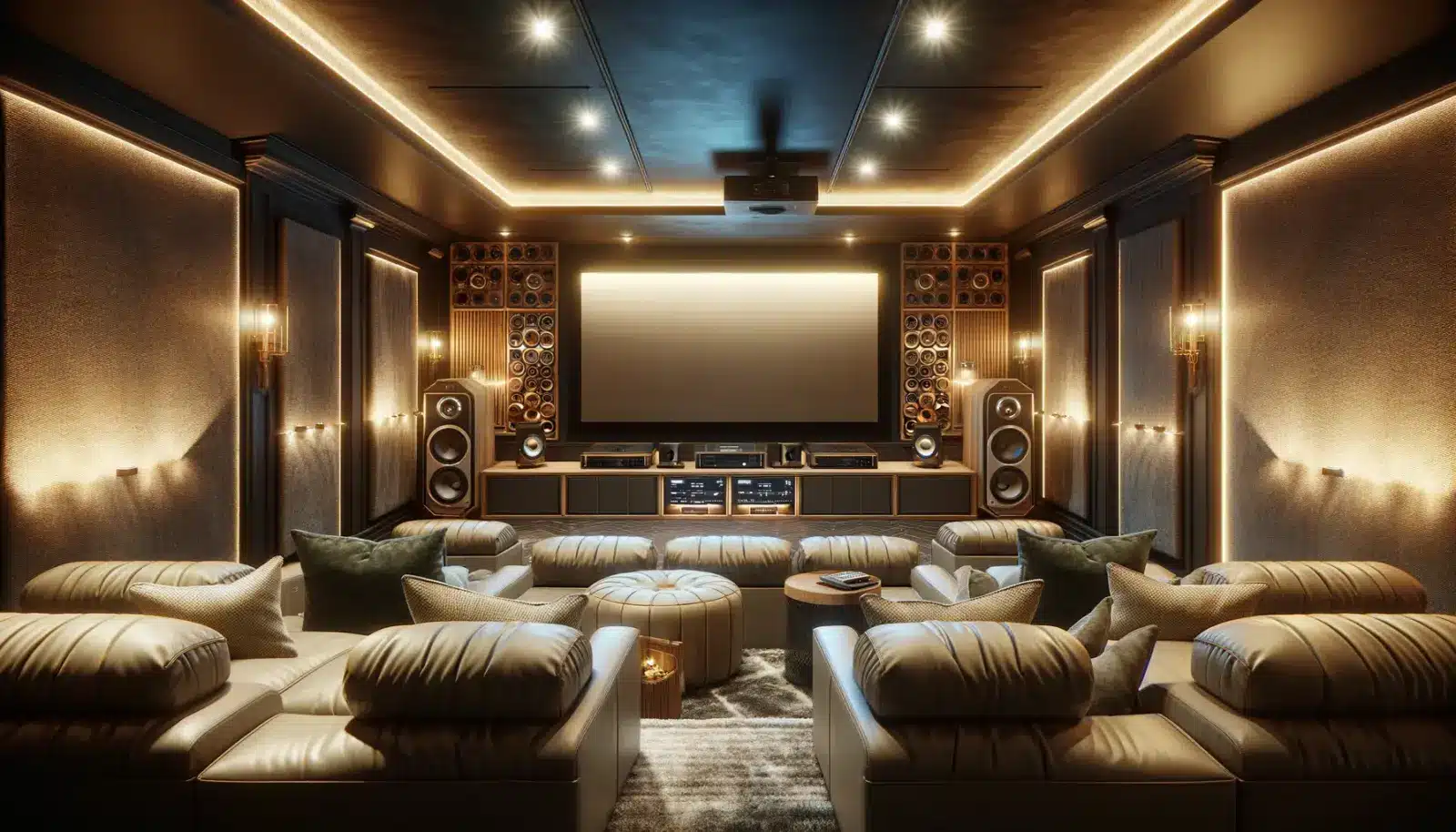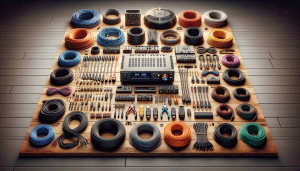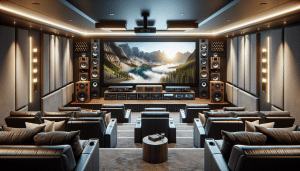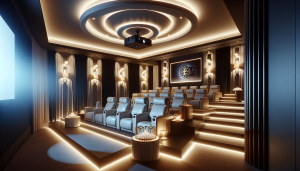Transforming your basement into a serene oasis for movie nights, without the interruption of overhead footsteps or external noise, requires more than just thick walls. Soundproofing techniques are pivotal in creating the perfect auditory experience, especially in Utah homes designed with open spaces and minimal barriers. This guide walks you through 10 essential strategies to soundproof your Utah basement, turning it into the ultimate home theater experience promoted by AZP Home Theaters.
Soundproofing Techniques for Utah Basements
Soundproofing your basement is not just about blocking noise; it’s an art that enhances your audio-visual experience, ensuring every movie night is immersive. Whether it’s the latest blockbuster or a classical music concert, the right techniques can transform your Utah basement into a premier home theater setting.
1. Understanding Sound Transmission
Before diving into the techniques, understanding how sound travels through spaces helps in effectively targeting noise control. Sound waves can penetrate through the smallest openings, making it essential to seal and insulate your basement comprehensively.
2. Decoupling the Structure
Decoupling involves separating the walls, ceilings, and floors to prevent sound vibrations from traveling through the building’s structure. This technique is crucial for eliminating low-frequency noises, which are common in home theater setups.
3. Adding Mass
The principle here is simple: the heavier the barrier, the harder it is for sound to pass through. Using dense building materials can significantly reduce noise transmission into and out of your basement.
4. Damping Sounds
Applying damping compounds between layers of drywall can absorb and dissipate sound energy. This method is especially effective against mid to high-frequency sounds, making it ideal for movie dialogues and music.
5. Absorbing Sound with Insulation
Sound absorbing materials, such as mineral wool or fiberglass, can be packed into walls, ceilings, and floors to reduce echoing and absorb sound vibrations, ensuring clearer sound quality within the theater.
6. Sealing Gaps and Cracks
Even the smallest openings can be a gateway for sound leakage. Sealing all potential gaps with acoustic sealants is a critical step in ensuring your basement is soundproof.
7. Acoustic Panels and Tiles
Strategically placed acoustic panels and tiles can not only improve sound quality within the room but also prevent sound from escaping, making them a dual-purpose solution for your home theater.
8. Double Drywall with Green Glue
Adding an extra layer of drywall with a damping compound like Green Glue in between is a highly effective method for soundproofing. This technique significantly increases mass and damping, offering superior noise reduction.
9. Soundproof Doors and Windows
Investing in soundproof doors and windows can dramatically reduce external noise interference, ensuring that your home theater experience is as immersive as possible.
10. Floating Floors
A floating floor system provides an additional layer of sound insulation, preventing noise from traveling through the floor. This is particularly beneficial for basements with overhead living spaces.
Conclusion
Soundproofing your Utah basement for a home theater is a worthwhile investment that pays off in enhanced movie-watching experiences. With these techniques, you can create a space where sound is not just heard but felt, making every viewing a memorable event. Ready to upgrade your basement? AZP Home Theaters specializes in transforming ordinary spaces into extraordinary home theaters. Please request a free quote here and start your journey to an unparalleled home theater experience.
FAQs
How effective is basement soundproofing for home theaters?
Basement soundproofing is highly effective in creating an isolated environment, free from external noise interference, thus ensuring an immersive home theater experience.
Can I soundproof my basement on a budget?
Yes, there are several budget-friendly soundproofing techniques, such as adding acoustic panels, sealing gaps, and using insulation, that can significantly improve sound quality.
How long does it take to soundproof a basement?
The duration depends on the extent of soundproofing required and the techniques used. Simple improvements can be made over a weekend, while more extensive renovations may take several weeks.
Is it necessary to hire professionals for basement soundproofing?
While DIY options are available, hiring professionals like AZP Home Theaters ensures that soundproofing is done effectively and efficiently, leveraging the right techniques for optimal results.
Does soundproofing a basement increase home value?
Yes, soundproofing adds significant value to your home by creating a versatile space that can serve as a quiet retreat or an entertainment hub, appealing to potential buyers.
What is the best soundproofing material for basements?
Materials like mineral wool insulation, acoustic panels, and specially designed soundproofing drywall are among the best choices for basement soundproofing due to their high sound absorption rates.




